Greetings, dear listener. This weekend you find us in a rather post-Lovecraftian mood, and poking a stick at two new collections – Dreams from the Witch House, edited by Lynne Jamneck, and The Mammoth Book of Cthulhu, edited by Paula Guran. Plus we’ll throw in a few H P Lovecraft-related musings and extras as well. We start with a terrific interview with the talented Lynne Jamneck, exploring her own writing, her editing role, themes in LGBT fiction and other topics.
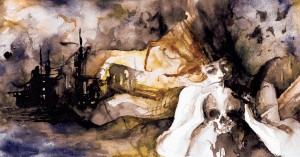
As we’ll be talking about Lynne’s work during the interview, we’ll just say that she’s of a Kiwi disposition, based in New Zealand, with many writing and editing credits to her name. She has been nominated for the Sir Julius Vogel and Lambda awards, and holds an MA in English Literature from Auckland University. She also shares our interest in home-brewing, but we couldn’t quite fit that in. Let us meander in her direction…
greydog: Lynne, welcome to greydogtales and our relentless efforts to weird the world wide web. It’s no secret that we contacted you initially to talk about your role in putting together Dreams from the Witch House: Female Voices of Lovecraftian Horror, but like many of our guests, you have a number of strings to your bow. Let’s start with your editing work and move on from there.
When you first took on the editing role for Witch House, what did Lovecraftian mean to you?
lynne: “Lovecraftian” to me has always been more about mood than about Cthulhu, or Azathoth or any of the deities that populate the mythos. It’s about the uncanny, weirdness and cosmicism – the things we hide from behind ignorance and reality TV.
greydog: Did that change after going through the submissions and making your final selection?
lynne: My focus for Witch House was always on stories that somehow reflected the elements I mention above. I wasn’t specifically looking for stories that included deliberate reproductions of Lovecraft’s geographies or characters. Those spaces and places are definitely in the final stories, but in versions that feel more contemporary and therefore, more removed from imaginary Arkham.
greydog: Did you have a specific ‘feel’ for Witch House, beyond the core premise of Lovecraftian tales written by women? By that we mean was there a mood or tone that you wanted the anthology to convey?
lynne: I wanted stories to instil unease, and not necessarily as the result of violent, external elements. I think elements that involve apprehension toward humanity are sometimes neglected in Lovecraft’s work – in his case, arguably most explicitly conveyed in his views about other races and ethnicities. We don’t always need tentacles to be scared. Sometimes all we need to do is look in the mirror. That’ll drive a good lot of us insane.
greydog: Absolutely. How do you feel about being an editor? You’ve edited before (Periphery, for example). Is it a nerve-wracking job, or one where you sit back, kick off your boots and simply enjoy being able to browse other people’s work rather than have to write?
lynne: It’s exciting in the sense that you never know when you’re going to discover an absolute gem of a story. But it’s frustrating in the sense that you have a finite number of stories that you can include in the final book. There have been instances where it took me days to decide between two stories because they were both equally good. That’s not a fun task.
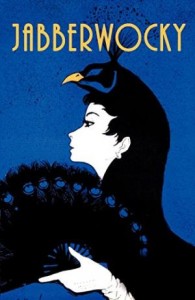
greydog: You’re also in the editor’s seat with S.T. Joshi for this year’s Gothic Lovecraft anthology, is that right?
lynne: Yes. That was a great experience, working with someone whose knowledge about Lovecraft is so vast and who has a well-trained eye for the uncanny. S.T. and I have slightly different tendencies when considering stories, but we also appreciate many of the same elements, sometimes just rendered a little differently. We ended up picking a great collection of stories.
greydog: Witch House is out now, with a great line-up that includes Elizabeth Bear, Joyce Carol Oates, Caitlin Kiernan and Storm Constantine. We’ll link to where people can get a copy at the end of this interview, but we want to talk about you and writing. Looking at your back catalogue, your range is fairly wide – crime, queer fairies and Lovecraftian horror, for example. Enjoyable diversity, an artist in search of a spiritual home, or part of a grand plan?
lynne: Those phases can likely be linked to whatever I found myself asking questions about at different times in my life. Or what I felt a specific kinship with. I read a lot of crime in my late teens and early twenties, and possibly considered writing crime as being a challenge. Then I discovered that as a writer, plot comes secondary to me. It’s characters all the way down!
As to fairies, in my experience, many queers go throw a period in their life where it almost feels that their sexuality defines them, whether they want it to or not. Fantasy lends itself well to addressing such issues because you’re working in a genre where the Other is often celebrated. This phase didn’t last long for me, though; heterosexuality doesn’t define anyone, so why should being queer define me? Like we say in New Zealand, yeah-nah, bro.
One thing that has always been part of my writing process is the act of asking questions. Questioning is an act of defiance; all of us can be rebels this way. We must never stop questioning –not ourselves, not other people, and not those who effect control over us. It also lies at the heart if what the Lovecraftian addresses. Specifically, it asks uncomfortable questions, some of which we don’t have answers for. But that’s okay. Sometimes you don‘t need an answer. That doesn’t mean you shouldn’t ask the question anyway. I think maybe I’ve found my home here in this cosmic pool. Its comfortably uncomfortable.
greydog: We frequently slide back to writing Edwardian supernatural tales, despite our best intentions. Do you have a favourite genre or thematic area that you like to explore in your fiction?
lynne: I have a fascination with snow. Especially snow-covered landscapes. It’s not the Edwardians for me but the Romantics. William Blake wrote about how snow – something that is usually associated with purity and cleanness – can serve as a cover up for heinous crimes and other terrible things. Wordsworth and Coleridge’s depictions of Nature are the stuff of beauty and nightmares all at once. We often move through life without paying attention to the environments in which we exist, without being present. I’m interested in that moment when we see for the first time, are completely unravelled by it, and how we return from it. Or not.
greydog: Earlier this year we spoke to Cameron Trost, an Australian writer/editor who’s active in the Australian Horror Writers Association. Is there a similar scene in New Zealand?
lynne: The NZ speculative fiction scene is fairly small, but nonetheless very active. We have AuContraire each year, a week-end convention for speculative writers and other artists. This year will be its 37th iteration, so it has been going for a while! One thing I’d like to see is larger NZ publishers taking a more active role in promoting local speculative writers.
greydog: This site rambles on about gender and sexuality in fiction from time to time, so we thought we’d try a few thoughts out on you while you were here. For starters, we read somewhere that while you do write queer fiction, you don’t describe yourself as a queer writer. Is that because you see it as a limiting description?
lynne: This tags on from what I mentioned previously. I’m a writer who happens to be queer. That doesn’t mean I want to connect only with other queer readers. In that way it is limiting, but only in the sense that it confines me to writing within very specific parameters, which doesn’t challenge me as a writer.
greydog: In the past six months, we ourselves have written protagonists who included a teenage boy who liked wearing properly ironed skirts, a lesbian couple facing Lovecraftian horror and an Edwardian Virginian questioning both his sensual and sexual nature. None of these were written to make a point, except that people are interesting. Are we finally at a stage, do you think, where LGBT characters in fiction can just be characters like anyone else, rather than political symbols?
lynne: That’s the way I write queer characters but… I don’t know. Maybe not? It’s still very political to a lot of people and I completely understand that, because people are still being killed just for being gay. How can we not make that an issue? On the other hand, as a writer, I don’t want to talk about the same thing every time I write a story because I’d feel like I’m repeating myself.
greydog: We enjoyed your 2005 interview with Nicola Griffith, a terrific writer. We knew Nicola and met her a few times before she and her partner Kelly moved to America. In the interview, she said “There’s a limit to how many Coming Out stories—or Tales of Oppression, or whinges about How My Family Done Me Wrong Because I’m Different—can be interesting.” Do you think it’s true that many of these tropes or themes are getting worn out?
lynne: Yes. It’s difficult to explain this and I always seem to upset people with this answer. I’m not trying to devalue anyone’s experience of a horrible situation they may have lived through as a result of being queer. While we have made significant social and political strides in terms of gay rights, people still turn their backs on their kids for being gay; queers are still murdered simply for being. Nonetheless, I’d rather read a book with queer characters doing all the same things straight characters do in “normal” stories, experiencing the same problems (because we do) and having to navigate solutions to these everyday issues. Because we live everyday lives. I find that a lot more empowering.
The news and other media are always going to tell us about the horrible things people do to other people. I believe books can act as a countermeasure, a form of transcendent inspiration that moves beyond what the rest of the world constantly throws at us. The connection between reader and word is extremely powerful and it can work both ways, I believe. It can either empower or disenfranchise.
greydog: We’re reminded of our interview with Richard Mansfield last year. He and his partner Daniel make LGBT films (and some great supernatural adaptations as well). He said: “I think we were both feeling frustrated with gay cinema. There seemed to be very few releases with something different to say. Personally I wanted to make a film where the couple were secure and happy with themselves. I wanted to show a snap-shot in the lives of two men that had found a place to be themselves… Lots of gay cinema deals with self-loathing or homophobia but I wanted any negative influence to be external…”
Right, we’re running out of space. We always like to give our listeners a trail or two to follow. Who stands out for you (as a reader) amongst contemporary writers – genre or otherwise?
lynne: What a question! So many. But I’ll try. I adore Susanna Clarke’s Jonathan Strange and Mr Norrell and I cannot wait for the sequel. The Southern Reach trilogy by Jeff VanderMeer – like an extremely weird version of LOST but with a better ending. I just finished Jacqueline Baker’s The Broken Hours: A Novel of H.P. Lovecraft which was haunting and beautifully written. I’m currently reading All the Birds in the Sky by Charlie Jane Anders, and it’s magical. Not to mention all the terrific short fiction out there – I highly recommend The Year’s Best Weird Fiction anthologies published by Undertow Publications.
greydog: What will we see from you in the next year or so? More fiction, more editing, or do you have quite different endeavours planned?
lynne: I’m currently working on a proposal for a collection of stories that will centre on the weirdness of nature. Because the natural world is STRANGE. I’ve been working on a novel for longer than I care to remember but I have some nefarious plans in that area that will hopefully come to fruition soon. The forthcoming Black Wings of Cthulhu V features my story “In Bloom”. And there’s some more stories in my skull banging away looking for an exit. Who needs sleep, right?
greydog: Lynne, thank you – it’s been a pleasure to meet you, and we look forward to your future works.
You can find out more about Lynne and her work on her own blog, here:
And you can also dig into Dreams from the Witch House, which is available now, and sample the many interesting tales within.
dreams from the witch house (us link)
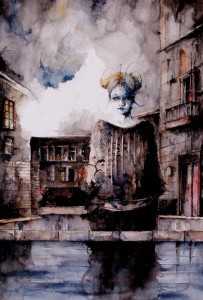
Later tomorrow – The Mammoth Book of Cthulhu, Sex and the Cthulhu Mythos, and a few extra snippets.
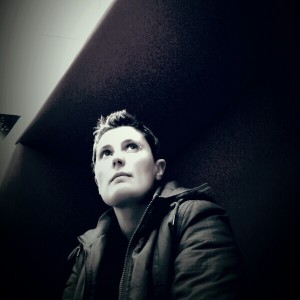
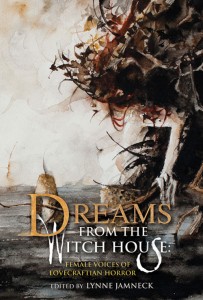
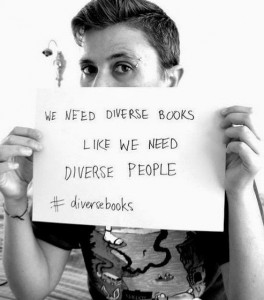
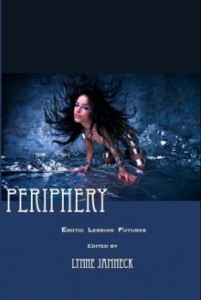
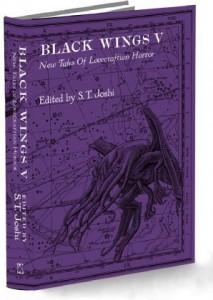
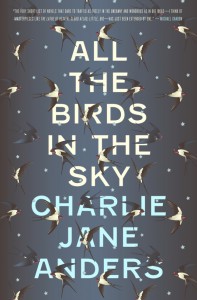
Wonderful interview. I’ve seen Jamneck’s anthology locally and will now most likely give it a try.
Thanks. You’re doing fantastic work at your R’lyeh site as well – I must stop by and catch up properly, as I’ve missed at least a couple of posts.